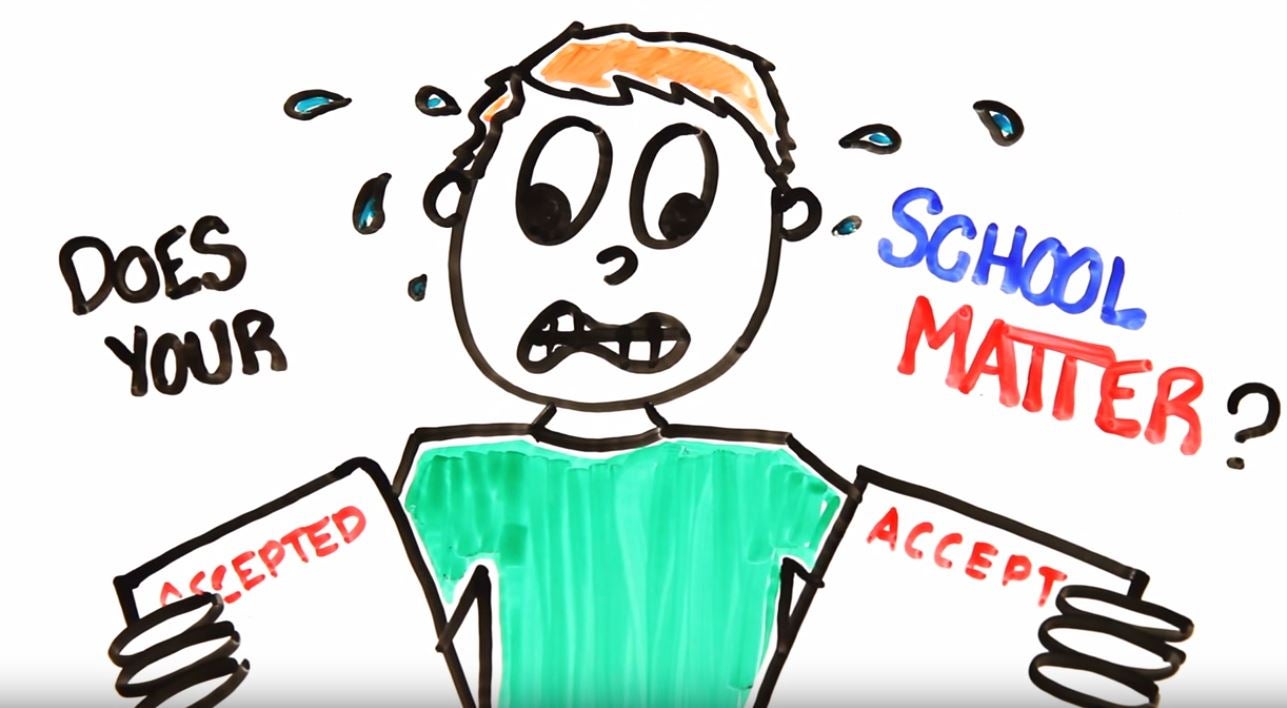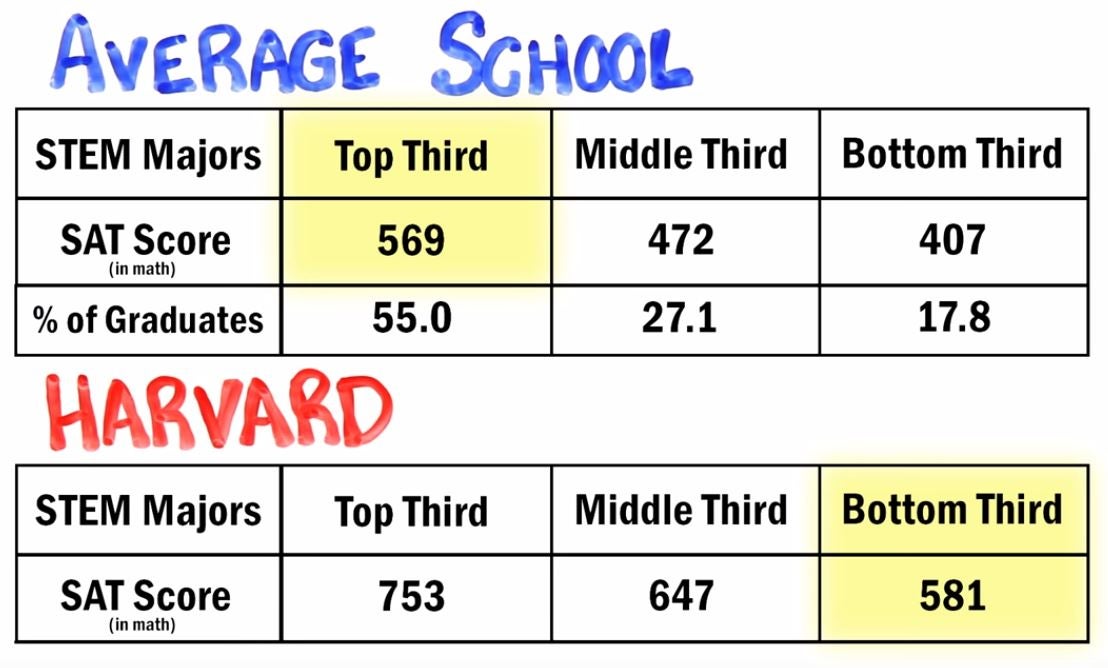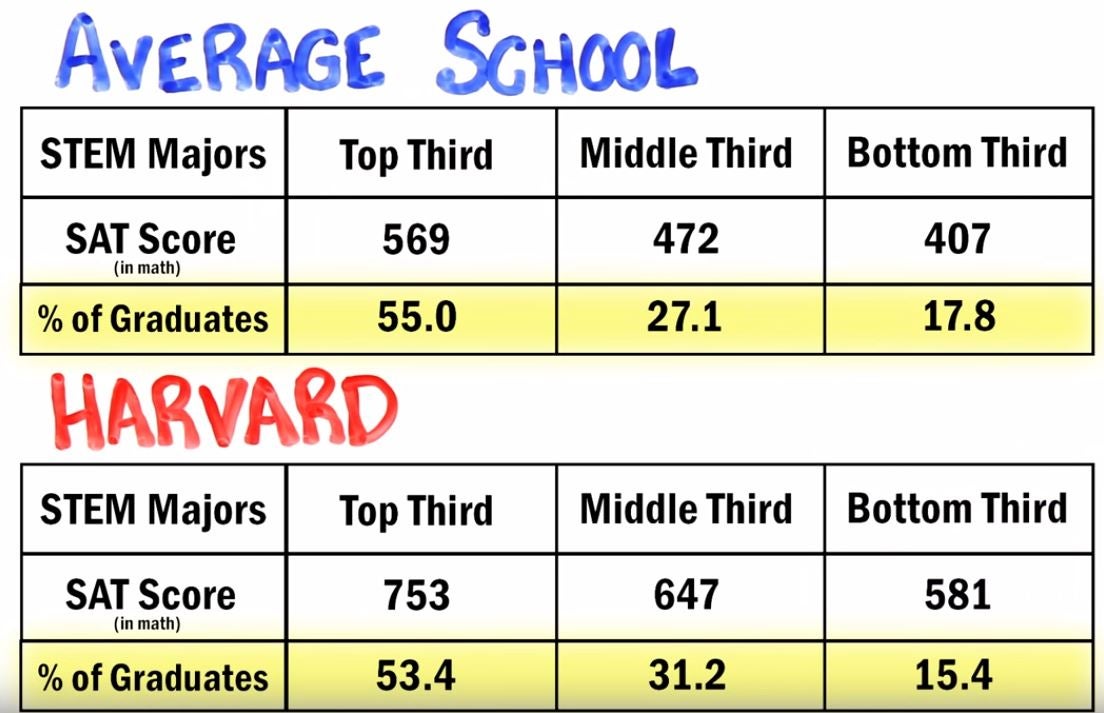AsapSCIENCE video explores whether it really matters if students go to the 'best' or 'worst' universities
Confidence in ability and being a 'big fish in a little pond' may be more important than the university itself, says the popular clip

Your support helps us to tell the story
From reproductive rights to climate change to Big Tech, The Independent is on the ground when the story is developing. Whether it's investigating the financials of Elon Musk's pro-Trump PAC or producing our latest documentary, 'The A Word', which shines a light on the American women fighting for reproductive rights, we know how important it is to parse out the facts from the messaging.
At such a critical moment in US history, we need reporters on the ground. Your donation allows us to keep sending journalists to speak to both sides of the story.
The Independent is trusted by Americans across the entire political spectrum. And unlike many other quality news outlets, we choose not to lock Americans out of our reporting and analysis with paywalls. We believe quality journalism should be available to everyone, paid for by those who can afford it.
Your support makes all the difference.It feels like a new university rankings guide comes and goes with each passing week, each with its own set of results on the world’s best universities, each with its own methodology when calculating those results.
But one video is doing the rounds online, and asking: does the university you choose actually matter?
Weekly facts website, AsapSCIENCE, has decided to bring science into the question and has looked at the maths results from an ‘average’ university and compared them with the results of those at Harvard.
Students at the average one who achieved the highest scores represented the highest population of graduates with degrees, while the lowest maths test results group represented the lowest number of those who graduated – which isn’t surprising, is it?
But, when compared with a top university like Harvard, those with the lowest results were still smarter than the best students in the average institution, as the below image explains:

However, when you look at the rate of graduates, it’s rather similar:

So, what’s the deal here? It’s a phenomenon, say the science enthusiasts, known as the ‘big fish, little pond’ effect where, not only do we compare ourselves globally, but also to our peers in the same boat as us.
Therefore, students at a top university will always compare themselves to their brilliant peers and, if they’re in the bottom half of that class, they are more likely to be less confident and feel less intelligent – even though to everyone else, that student is the best. Following so far?
Watch the short video to know more:
Overall, the clip urges students to remember that, whether they are due to start at the best or the worst university this month, the formula for success is mixed. Confidence in ability and being a big fish in a little pond is sometimes more important than the university itself.
Now, isn’t that a relief?
Join our commenting forum
Join thought-provoking conversations, follow other Independent readers and see their replies
Comments